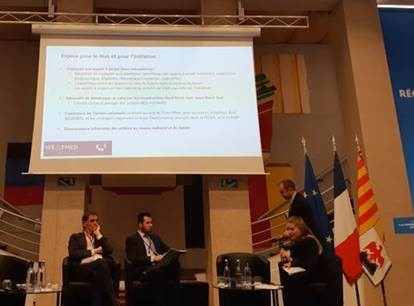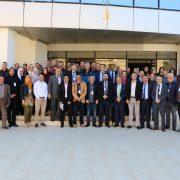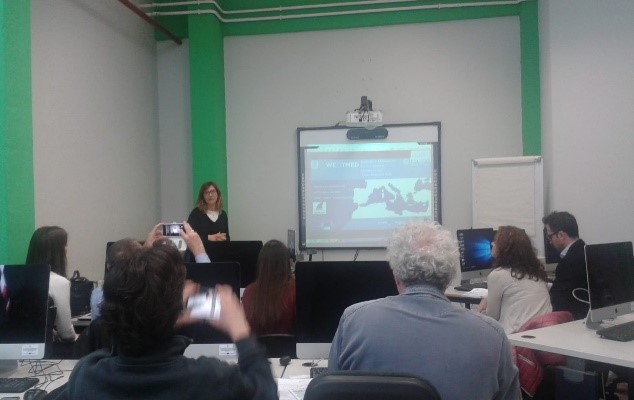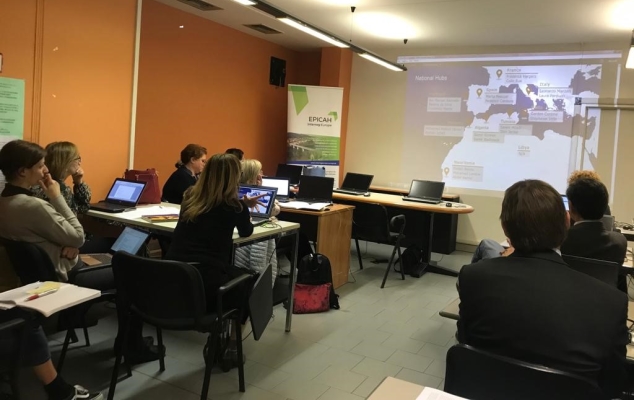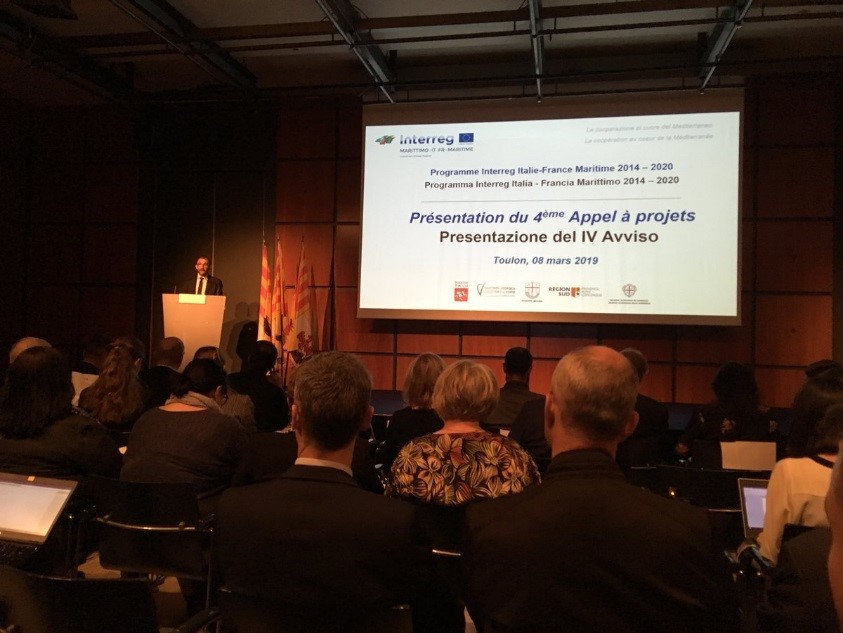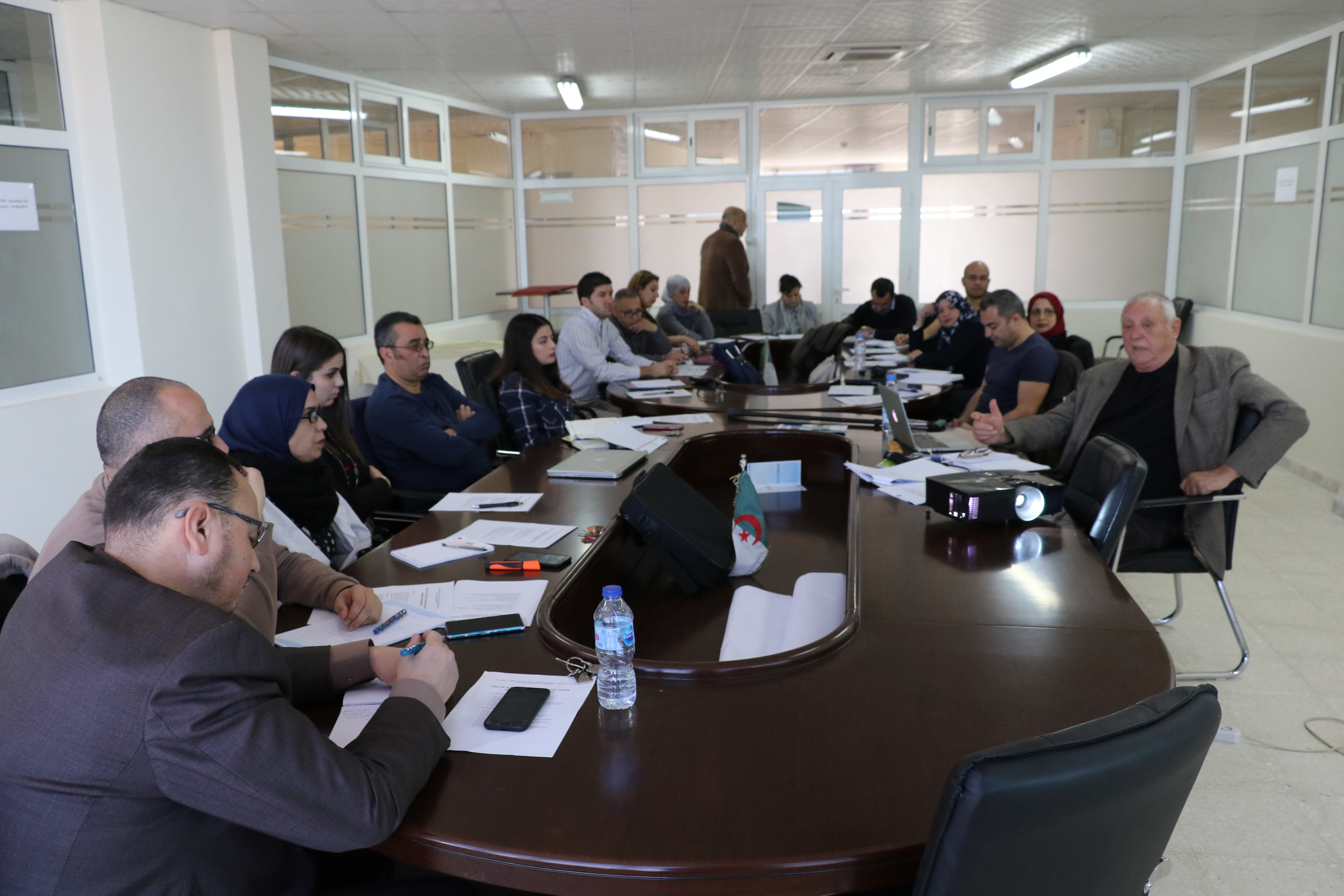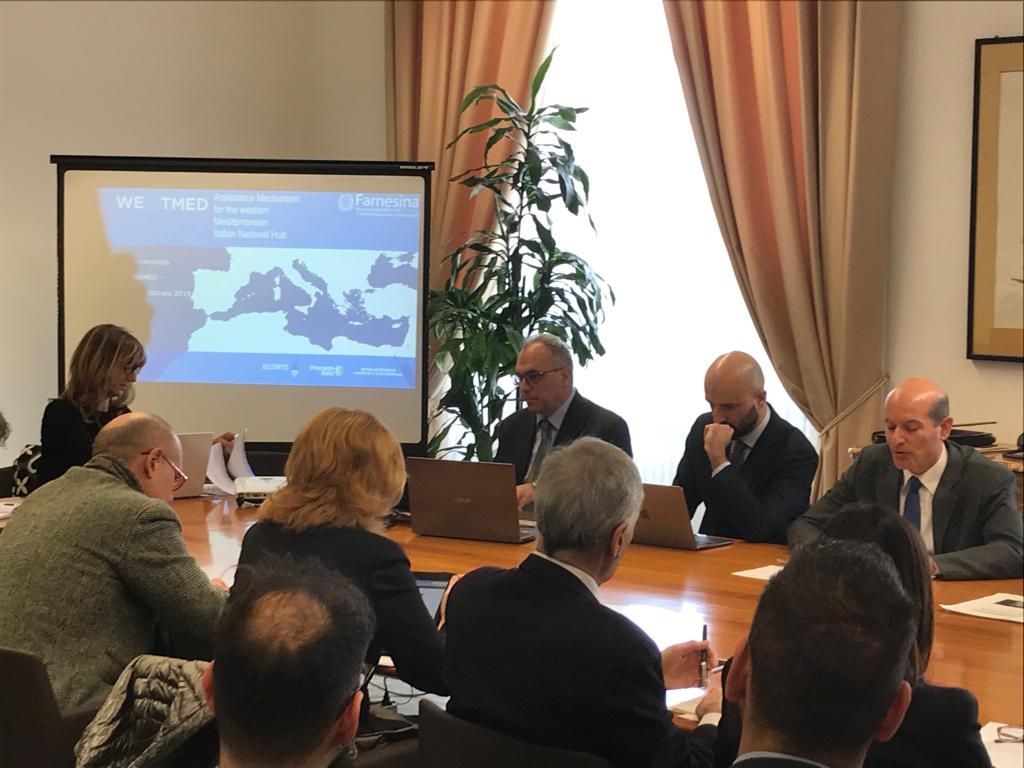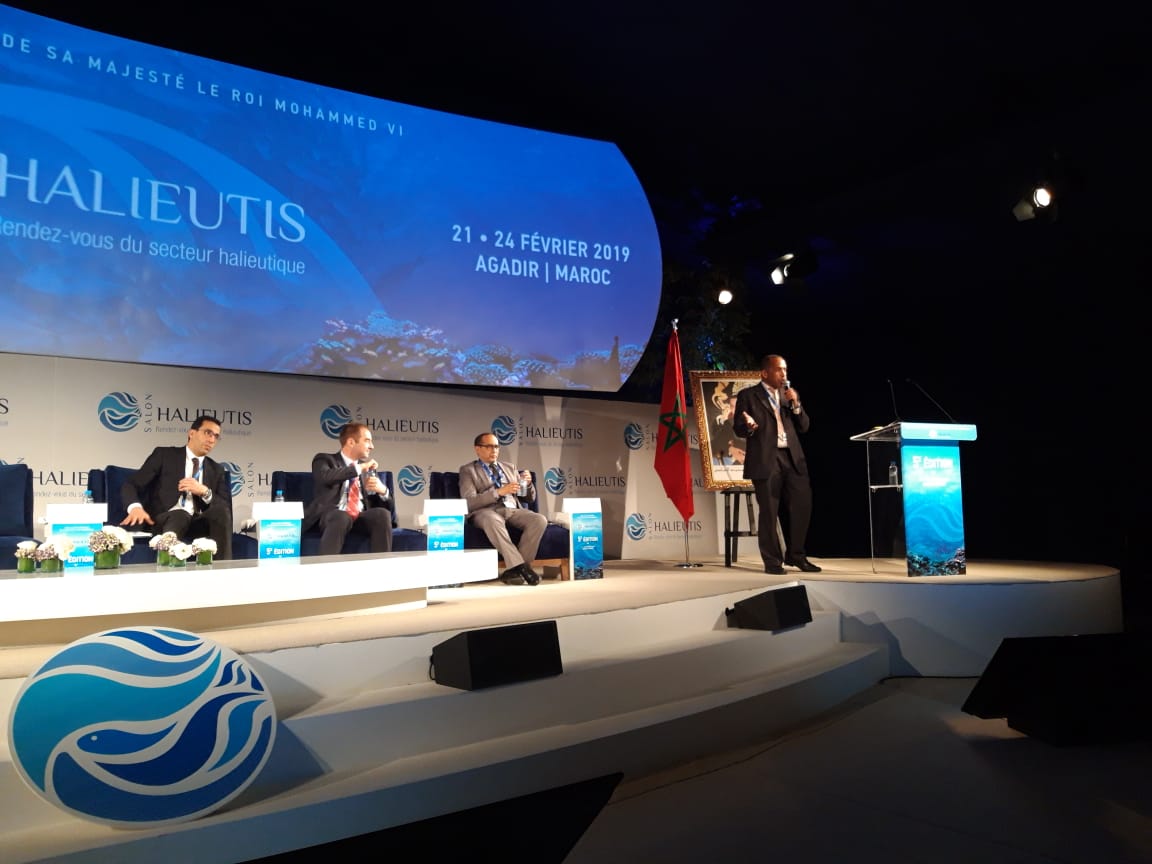L’Initiative WestMED présentée aux réprésentants tunisiens
Le 24 avril 2019 à Tunis, le hub national (M. Salem Miladi) pour la Tunisie a présenté le mécanisme d’assistance WestMED lors d’une réunion sous la présidence du coordinateur des projets PMI/CC et WestMED. Cette réunion regroupait plus de 50 personnes issues des différents ministères, administrations et instituts ayant un intérêt pour l’économie bleue de la Tunisie.
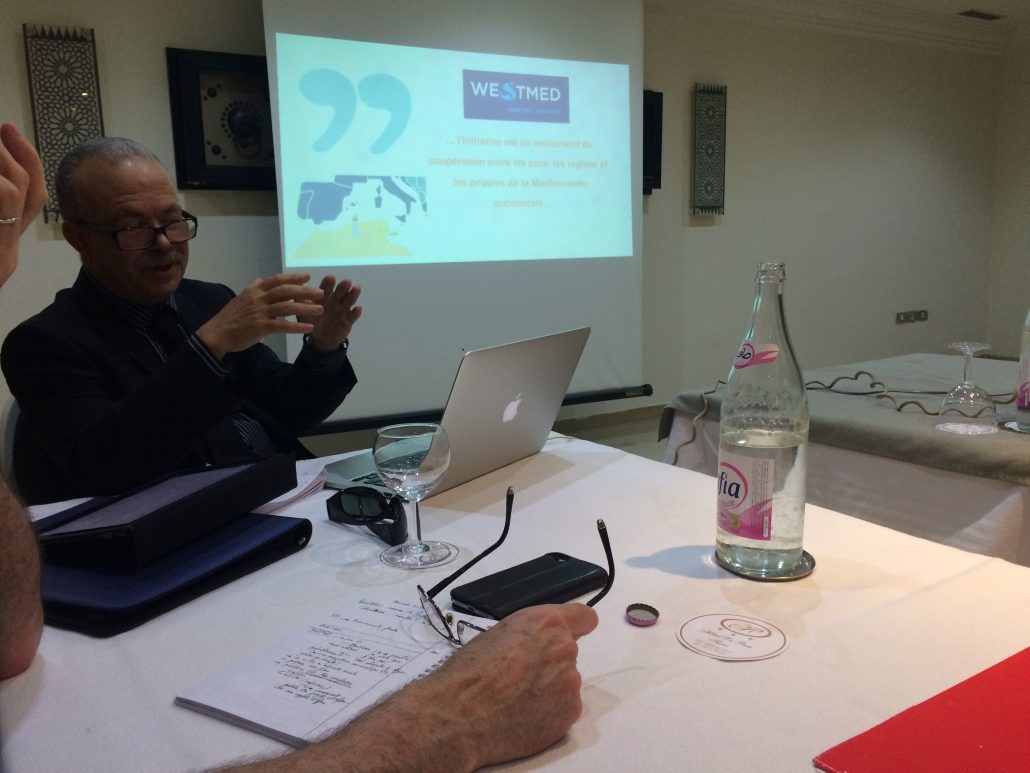
M. Miladi présentant l’Initiative WestMED
Cette présentation était inscrite dans le cadre de l’introduction des résultats de l’étude du potentiel de l’économie bleue pour la Tunisie. Cette étude a été réalisée et présentée par le cabinet Stratégies Mer et Littoral (partenaire du mécanisme d’assistance WestMED) dans le cadre du projet PMI/CC financé par l’Union Européenne (DG NEAR). La présentation des résultats a permis de partager avec les différents participants les constats de l’économie bleue nationale et surtout esquisser des recommandations et des options dans la constructions d’une stratégie nationale pour la mer et le littoral qui contribuera à la dynamique régionale de l’initiative WestMED.
A l’occasion de sa présentation le hub national a rappelé les objectifs partagés et décidés par l’Union Européenne, l’Union pour la Méditerranée et les partenaires du 5+5. Il a précisé les modalités de son action au niveau national notamment avec le coordinateur national et la Commission interdépartementale pour l’économie bleue en Tunisie, mais aussi et surtout sur ses relations avec les hubs nationaux pour identifier et soutenir le montage de projets et de partenariats entre les parties prenantes. Le hub national a enfin appelé à la mobilisation de tous les acteurs dans le cadre de l’initiative notamment avec une participation active et engagée dans la prochaine conférence régionale de Palerme, le 14 mai 2019.
Cette réunion fut l’occasion du passage de témoin entre les projets européens IMP/CC et WestMED. Elle va ainsi permettre à la Tunisie de s’engager dans le développement durable de son économie bleue en l’inscrivant dans le cadre sub régional de la Méditerranée Occidentale.

